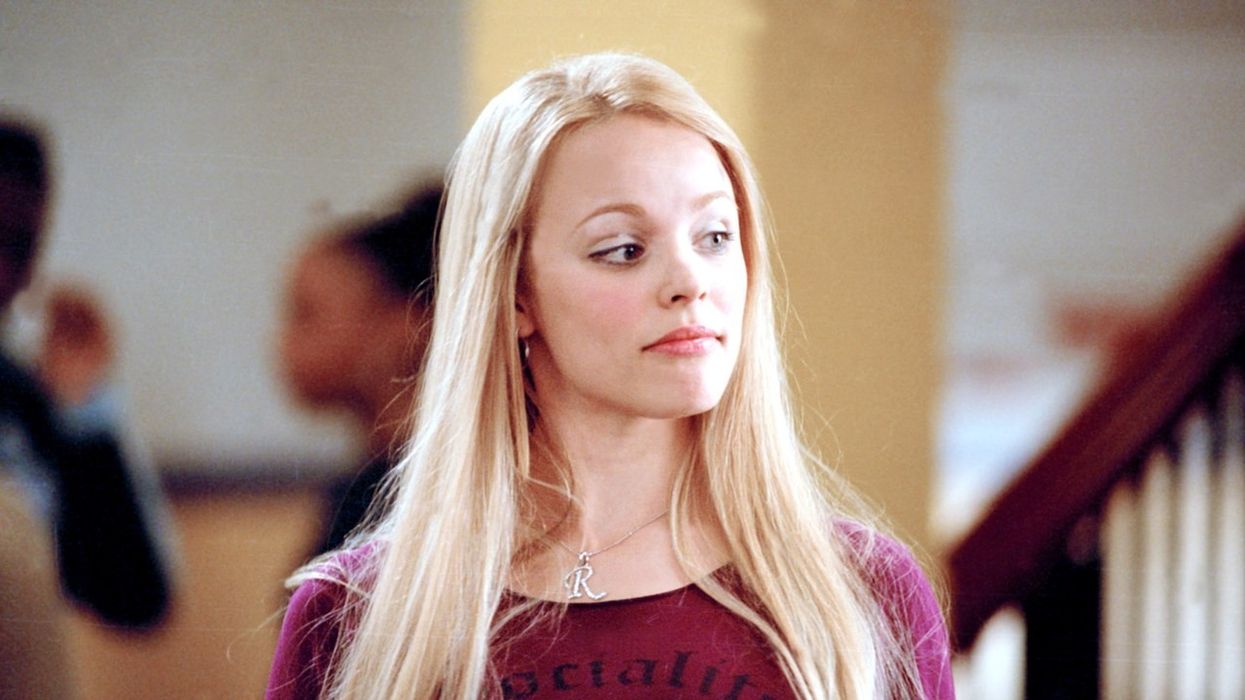Mean Girls’ Regina George Is (Literally) A Dictator
Regina has more in common with Stalin than Stephanie.

Do you have a message that you want to share? A point you want to illustrate? Movies can be powerful as allegory or metaphor. The ever-relevant 2004 hit Mean Girls is a reminder that you can embed your message into just about any story in ways that aren’t too preachy or on-the-nose.
In a 2018 interview with Variety, screenwriter and multi-hyphenate icon Tina Fey spoke about the relevance of Mean Girls to today’s political climate. “Calling someone a loser doesn’t make you a winner,” Fey said. “It’s so incredibly obvious, but still, apparently, we need to be reminded…We all do it, on both sides.”
In Mean Girls, Regina George (played by Rachel McAdams) is the head of The Plastics, a clique of the most popular girls in school. When Cady (Lindsay Lohan) wants to take Regina down, she teams up with Janis (Lizzy Caplan), who reveals her plot to end Regina’s reign as dictator. The clever minds at The Take go the whole nine yards with this idea and lay out each nuance of what makes Regina a dictator. Check out the video below:
The premise holds up pretty darn well, showing that the film essentially works as a guidebook for how to build a dictatorial regime…and, of course, how to topple it.
The video cites a theory that dictatorships are built on three key pillars: legitimacy, co-option, and repression. Here are some of the major takeaways of how Regina George uses these methods to seize and maintain power:
Legitimacy: Regina George is validated by her looks, lifestyle and extreme popularity.
Regina makes a public display of going out with Aaron Samuels. The pretty-boy-jock “functions as a badge of validity” for her. She’s also conventionally attractive. “The Spring Fling Queen is always pretty,” Regina says. The culture demands a level of attractiveness that she never fails to attain. Regina also lives a lavish lifestyle, which her peers envy and admire. A classic (and very real) trope of the dictator is the flaunting of excess to the undeserving masses. “She enjoys formal and ritualistic displays of affection by her public,” and is “the uncontested winner of popular votes,” always winning the crown for Spring Fling Queen. Many of her fellow high-schoolers don’t really like Regina, but they feel obligated to display their enthusiasm and support.
Co-option: Regina brings potential rivals into her inner circle
Regina sees Cady as dangerous competition because she is also pretty and gaining social status. To curb this threat, she brings Cady into The Plastics, to keep a watchful eye on her. Regina’s strategy is to make Cady feel she is close enough to the top of the heap not to consider usurping the crown. (Or so the young dictator thinks...)
Repression: She keeps the high school in a state of fear, enforced by a secret police
Regina has a file on every one of her schoolmates. She and The Plastics monitor their every move and when someone steps out of line, they are punished. The rules of her regime are strict and followed blindly by each strata of the social hierarchy. “You can’t join Mathletes, it’s social suicide!”
In the Variety piece, when asked directly about the political nature of Mean Girls, Fey demurred: “People have connected it. I think I’ve seen somebody on Stephanie Ruhle’s show on MSNBC say, ‘Look at the “Mean Girls” behavior among the administration.’ Sure, if that works for you.”
If it was her intention to be political, she’s clearly not letting it on here. Is it possible to deliberately create such a precise allegory as well as an entertaining high school flick? Movies can work on multiple levels at once...and if they’re as great as Mean Girls, they can be dissected for decades to come. What do you think?
Source: The Take











